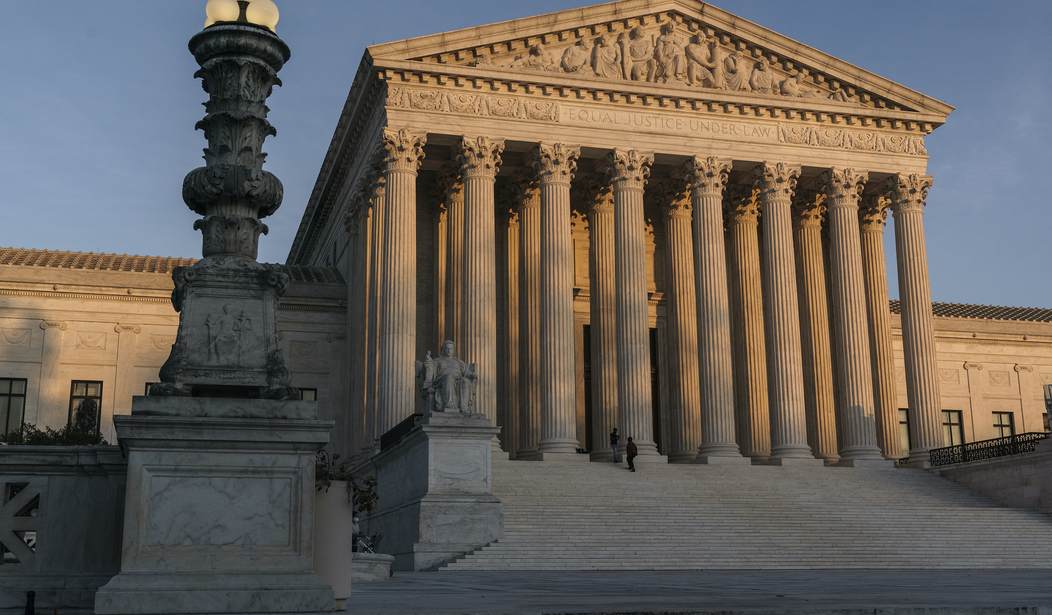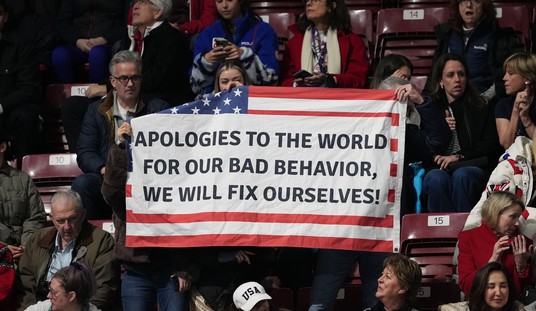Unable to stall President Trump through legal shenanigans, a cabal of leftist judges seems intent on destroying the credibility of the judiciary so that Trump's actions are also discredited. Yes, as incredible as it may seem, 47 judges have accused the Supreme Court of mishandling cases involving Trump's actions via its emergency docket.
The issue stems from the simple proposition that a nontrivial number of judges no longer see their job as ruling on conflicts of law. They see their job as ensuring the "correct," and naturally progressive, outcome to cases. The very fact that Trump has had only one minor setback at the Supreme Court, despite having virtually every decision of consequence litigated, is an indication that the legal reasoning and arguments of his team are rock-solid; see SCOTUS Scorecard: How the Trump Administration Is Faring Before the High Court (So Far). With increasing frequency, courts are issuing rulings that amount to "I don't like it." So long as the President has legal authority to do so, that is not an argument that is a tantrum. Sometimes the results are hilariously stupid.
When a federal judge ruled that Trump could not mobilize the Illinois National Guard, despite his clear constitutional authority to do so in a case upheld (at least for now) by the Ninth Circuit (Breaking: 9th Circuit Issues Stay Pending Appeal in CA National Guard Case, Handing Trump a Big Win – RedState), the judge included a noxious footnote.
Snarky asides in footnotes do not improve the persuasive effect of the opinion. I literally do not understand this one. Even if the President is right and "organized repeated, violent" attacks are ongoing against ICE, that just shows policy disagreement? What? That's novel!t pic.twitter.com/Sy6HHQHOVr
— Eric W. (@EWess92) October 11, 2025
Even if the Court were to have credited Defendants’ version of the facts, Defendants still would not have any support for the conclusion that the organized, repeated, violent, and increasingly hostile attacks on ICE agents, their personal property, and ICE property suggests anything more than an opposition to immigration law enforcement and immigration policy, as opposed to the authority of the Government as a whole.
Stop for a moment and consider that if she'd said "that the organized, repeated, violent, and increasingly hostile attacks on Blacks, their personal property, and their civil rights suggests anything more than an opposition to Blacks voting, as opposed to the authority of the Government as a whole," the entirety of the Reconstruction could've been avoided. Likewise, as the Whiskey Rebellion was only over a federal tax on liquor, Washington was totally deranged to call out the militia to suppress it.
This pattern of resistance has been amplified as a six- or seven-vote majority turns back these dishonest challenges without comment while Justice Jackson writes a 60-page diatribe on why the Supreme Court is totally in charge of government policy.
Friday, The New York Times ran an article headlined, Federal Judges, Warning of ‘Judicial Crisis,’ Fault Supreme Court’s Emergency Orders. To write this story, allegedly 65 judges were polled and "[o]f those, 47 said the Supreme Court had been mishandling its emergency docket since Mr. Trump returned to office."
In interviews, federal judges called the Supreme Court’s emergency orders “mystical,” “overly blunt,” “incredibly demoralizing and troubling” and “a slap in the face to the district courts.” One judge compared their district’s current relationship with the Supreme Court to “a war zone.” Another said the courts were in the midst of a “judicial crisis.”
BACKGROUND:
Frequently, “a slap in the face to the district courts” is not only required, but we'd all be better off if they got "a swift kick in the ass" to go along with it.
There are instances where I don't fault the lower courts. Trump has fired people who seemed to be protected by the "Humphrey's Executor" decision. A majority of the SCOTUS has since indicated that precedent needs to be overturned; see Trump Declares War on the Administrative State. In the National Guard cases, there is no legal basis to prevent the president from federalizing the National Guard. There is no legal reason to prevent him from deploying it as he wishes, notwithstanding the opinion of one or more judges. There is no reason for federal judges to muck about in immigration cases when Congress put those under immigration judges. There is no legal reason for courts to demand that a contract be continued, because Congress created a court system for that very purpose. There is no authority for a federal judge to order the reinstatement of fired personnel, as there is, again, a legal system set up for that very purpose. Those are the kinds of decisions that cause a "judicial crisis."
Referring to the SCOTUS rulings as "mystical" strikes me as another act of dishonesty. If the district court and the appeals court rule, then a SCOTUS ruling implies that it agrees with or disagrees with the lower court's ruling. If they can't read the opposing argument or grasp SCOTUS's intent, maybe they need other employment. Perhaps the lower court decision was so bad that SCOTUS couldn't stop laughing long enough to write a reply.
Yes, we are in the midst of a judicial crisis. But it isn't the one the survey respondents whinged about. We are in a judicial crisis brought on by judges who don't like the president. They don't like him using his electoral mandate to reshape the Executive Branch in ways they oppose, either politically or philosophically, and they are torqued because the Supreme Court isn't going along with their stalling tactics. Without the SCOTUS emergency docket, lower court decisions could remain in effect for years before getting to the Supreme Court.
For instance, it took the Supreme Court 15 months to hear the "Muslim Travel Ban" case during Trump's first term; see The Trump Travel Ban Probably Survived the Supreme Court – RedState. It took them an additional two months to finally announce the decision. SCOTUS ruled in Trump's favor, but a frivolous lawsuit had delayed his policy by nearly a year and a half.
The tactics aimed at stopping Trump from exercising his full Article II powers are now being used to obstruct the Supreme Court's rulings. This provoked Justice Neil Gorsuch to note, “Lower court judges may sometimes disagree with this court’s decisions, but they are never free to defy them," when dealing with one particular case of obstruction.
As it currently stands, the only way to discipline judges is by impeachment. That is a high bar to clear, and quite honestly, it gives lower court judges free rein to issue bizarre rulings and then demand that they be obeyed until the Supreme Court gets around to overturning them. If we don't create some way to discipline judges short of the current impeachment process, things will only get worse. And then we're headed toward Brazil (US Senator Endorses Extra-Constitutional Means to Block Populist Candidates From Taking Office – RedState) and other Third World countries that are effectively run by an appointed judiciary with lifetime tenure.
When we impeached our country’s corrupt judges, we faced strong backlash from the so called “international community”, including the Biden administration.
— Nayib Bukele (@nayibbukele) October 5, 2025
We did it anyway, because it was the only way to save our country.
The US, however, doesn’t have to answer to anyone 🤷🏻♂️ https://t.co/a0ncMikTiP
Donald Trump is America's Peace Time President. Support and follow RedState’s latest reporting on the president's historic trip to the Middle East. Join RedState and use promo code POTUS47 to get 74% off your membership.













Join the conversation as a VIP Member